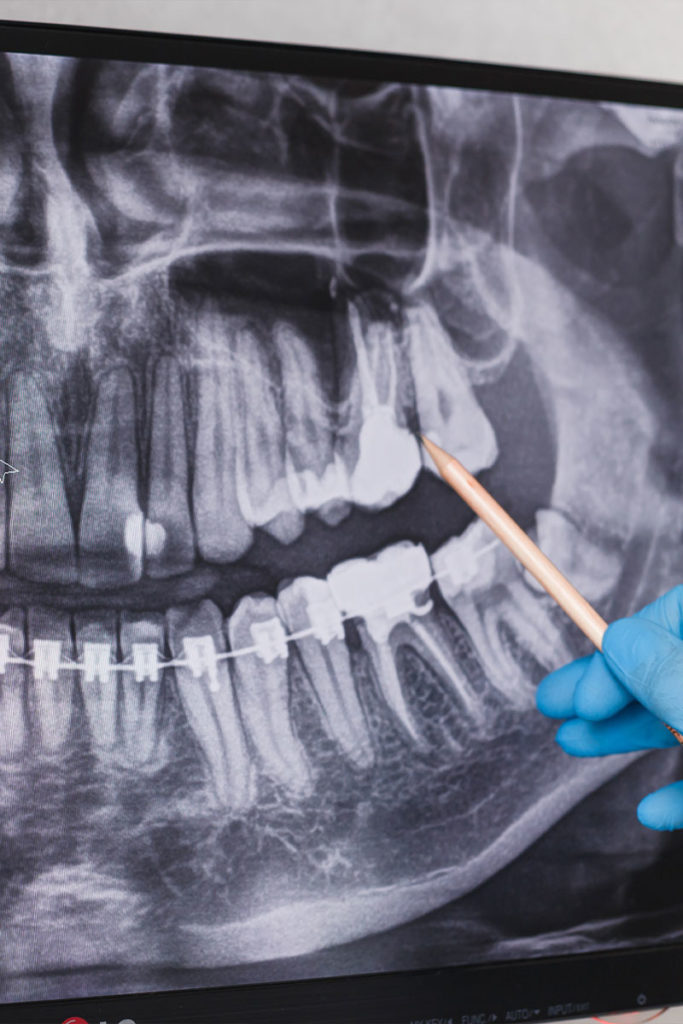
20 July 2021
A relic from a bygone age, wisdom teeth are the troublemakers of the dental world. They lurk in the deep, dark recesses of our mouths waiting to wreak all sorts of havoc.
Wisdom teeth usually develop when we’re in our late teens or early 20s – the age when we’re supposed to start gaining wisdom as we mature into adulthood.
This third set of back teeth – the final molars to develop – often emerge misaligned or stay buried in the gum. Wisdom teeth removal is commonplace to prevent complications from issues like these.
So, if wisdom teeth are so much hassle, why do we get them? The truth is we don’t need wisdom teeth – but evolution hasn’t yet cottoned on.
Anthropologists believe wisdom teeth evolved to cope with the diet of our early ancestors – raw meat, nuts and roots, for instance, which needed a powerful chewing force.
Our modern diet – cooked meat and softer foods – and utensils like knives and forks make wisdom teeth redundant. Evolutionary biologists regard them as vestigial organs – parts of the body that like the appendix serve no function.
The reason we still get pointless, bothersome wisdom teeth may simply be that the evolution of mankind is a slow and cautious process – it hasn’t caught on yet to the idea that we no longer need these teeth.
At the same time, evolution has perversely made our jaws considerably smaller, so most of us don’t have room in our mouths for wisdom teeth.
Some experts say wisdom teeth could eventually disappear. Meanwhile, we continue to suffer because evolution apparently still thinks we’re ape-like hunter/gatherers when it comes to dental matters – but has failed to retain the associated larger jaw.
Lack of space frequently causes wisdom teeth to:
- Grow sideways, which can crowd other teeth.
- Only partially erupt through the gums.
- Get trapped inside the gums and jaw bone.
When wisdom teeth don’t emerge properly, they’re known as impacted. It’s difficult and sometimes impossible to keep impacted wisdom teeth clean. This makes them far more prone to infection from bacteria that causes cavities, inflammation and gum disease (periodontitis).
Even if wisdom teeth come in fully, they’re so far back in the mouth they become a magnet for food debris.
Wisdom teeth can probably stay put if they’ve fully emerged, positioned correctly with a good bite function, and you can manage to clean them effectively.
However, even if your wisdom teeth are causing no problems now, they may well do so later, when extraction can be problematic.
This is why most people who get wisdom teeth choose to have them extracted, and dentists generally recommend wisdom teeth removal to safeguard future oral health.
Wisdom Teeth Sydney can help you decide whether your wisdom teeth should come out. If extraction is your best option, they’ll talk you through the entire procedure to ease any concerns you may have.
